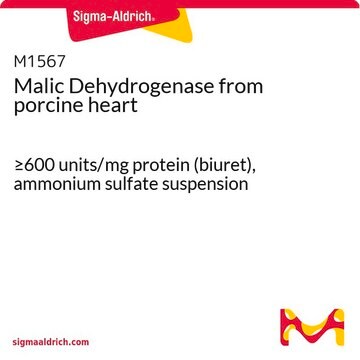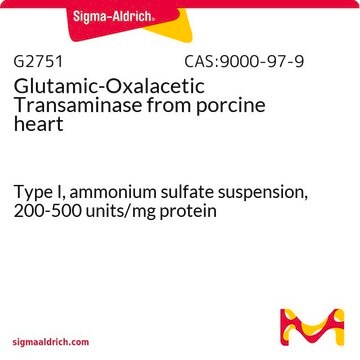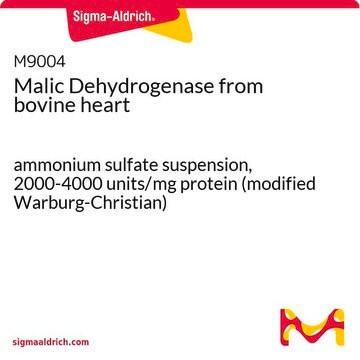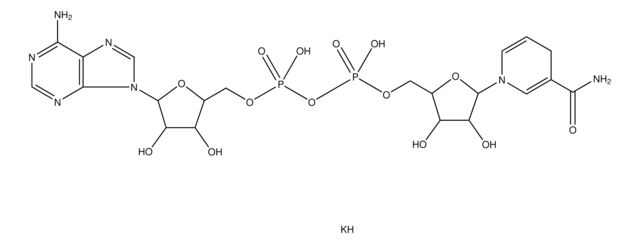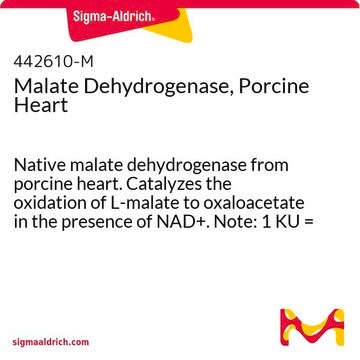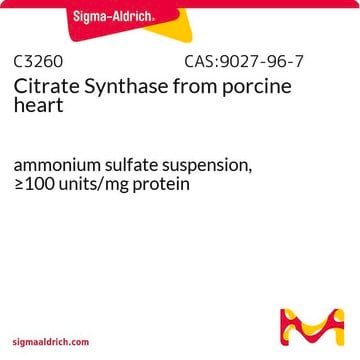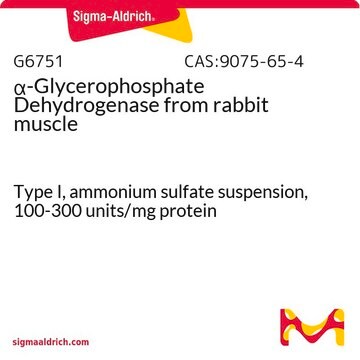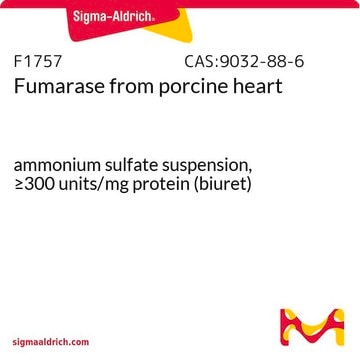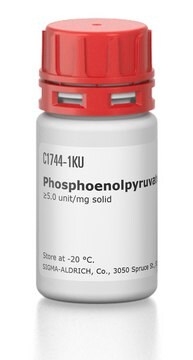M2634
Malic Dehydrogenase from porcine heart
buffered aqueous glycerol solution, 600-1000 units/mg protein (biuret)
Synonym(s):
L-Malate: NAD+ oxidoreductase, MDH, Malate Dehydrogenase
About This Item
Recommended Products
form
buffered aqueous glycerol solution
Quality Level
specific activity
600-1000 units/mg protein (biuret)
cation traces
NH4+: ≤10 μg/mg protein
foreign activity
Glutamic-Oxalacetic Transaminase ≤0.01%
Glutamic-Pyruvic Transaminase ≤0.01%
shipped in
wet ice
storage temp.
2-8°C
Looking for similar products? Visit Product Comparison Guide
General description
Application
Biochem/physiol Actions
The enzyme catalyzes the following reaction:Oxaloacetate + β-NADH → L-Malate + β-NAD
Unit Definition
Physical form
Storage Class Code
10 - Combustible liquids
WGK
WGK 3
Flash Point(F)
Not applicable
Flash Point(C)
Not applicable
Personal Protective Equipment
Choose from one of the most recent versions:
Certificates of Analysis (COA)
Don't see the Right Version?
If you require a particular version, you can look up a specific certificate by the Lot or Batch number.
Already Own This Product?
Find documentation for the products that you have recently purchased in the Document Library.
Customers Also Viewed
Protocols
Spectrophotometric assay evaluates malic dehydrogenase activity using bovine heart enzyme with critical histidine residue at active site.
Our team of scientists has experience in all areas of research including Life Science, Material Science, Chemical Synthesis, Chromatography, Analytical and many others.
Contact Technical Service